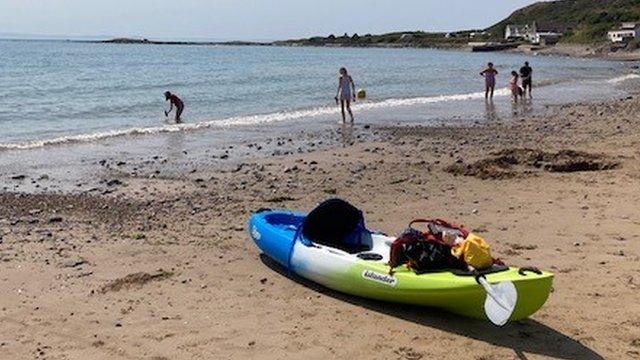Hosepipe ban in Pembrokeshire after driest year since 1976
- Published
- comments
Hosepipe ban: 'How will I water my tomatoes?'
A hosepipe ban, expected to last weeks, will be introduced in parts of Wales amid the driest year since 1976.
The ban, covering Pembrokeshire and a small part of Carmarthenshire, starts on 19 August as Welsh Water is under pressure to maintain supplies after low rainfall.
It means people will not be allowed to water their plants, wash their cars or clean windows using a hose.
The water company said the planned ban would be its first since 1989.
It follows similar bans announced for parts of southern England.
Anyone who would like to apply for an exemption to the ban should apply to Welsh Water during the consultation period between 10 and 17 August.
Welsh Water boss Peter Perry told BBC Radio Wales Drive he was "not pleased" to have to implement the ban.
"We're doing our bit. We've got 600 people finding and fixing leaks at the moment," he said.
He said the hosepipe ban was likely to be in place "for weeks", adding that the organisation had the power to levy financial penalties on people who persistently flout the rules.
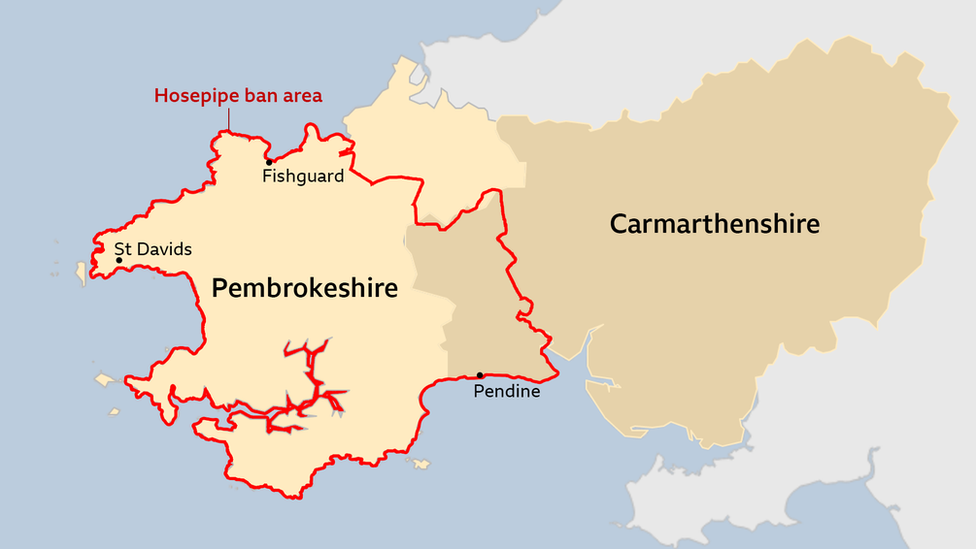
The ban covers much of Pembrokeshire and a small part of Carmarthenshire
One man told the BBC he was "horrified" at the thought that he might not be able to water his tomatoes.
"I'm not on a meter. I know it's a bit selfish but I pay £800 for water and there's only two of us in the house," said Jonathan Frost, from Cardiff.
"I'm pretty horrified because how am I going to water my tomatoes?"

Ellie Gent said she believes a hosepipe ban is reasonable given the circumstance
"If we need drinking water we have to accept a hosepipe ban is a necessity giving what is happening with climate change and we've had no rain," said Ellie Gent.
Rita Evans, from Narberth, Pembrokeshire, said she had a water butt and believed it was important to conserve as much water as possible.
"We have a lot of visitors here in Pembrokeshire at the moment and we've not had enough rain so I do understand why."
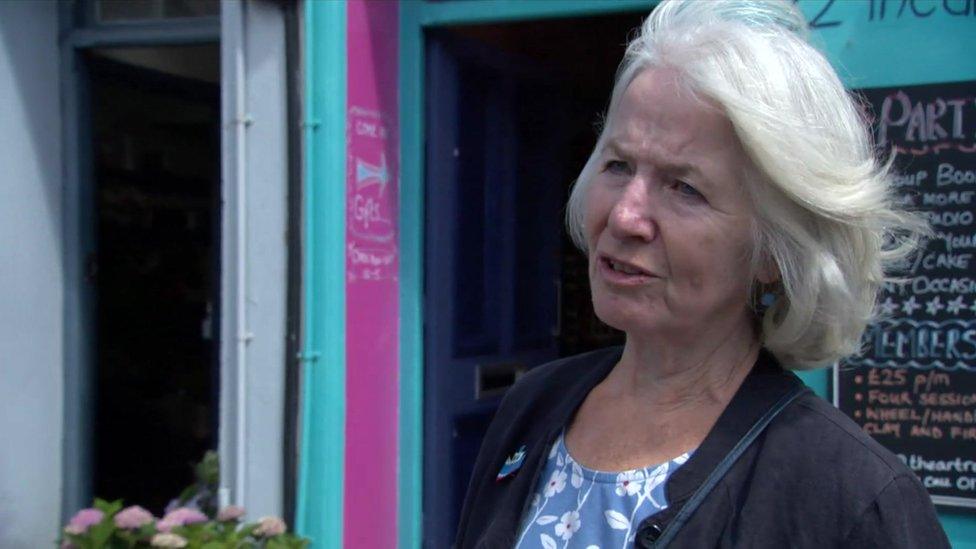
Rita Evans said she could understand why the ban was in place
Welsh Water's managing director of water services, Ian Christie, said: "We have not seen such prolonged dry conditions in Pembrokeshire since 1976.
"Introducing the hosepipe ban is not a decision we have taken lightly, however if we are to make sure there is enough water to see us through the rest of the summer and into the autumn then we need to act now to try and prevent any further restrictions later on."
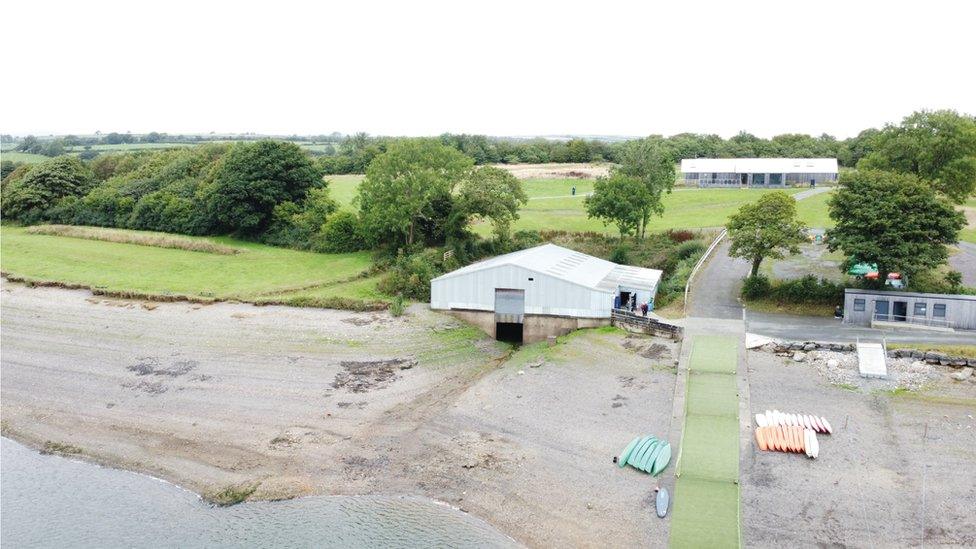
Reservoirs in Pembrokeshire, such as Llys Y Fran, are close to drought levels
"The ban will apply to just over 2% of the three million population we serve in Wales. More broadly we do not intend to introduce restrictions more widely across our operating area."
The company said it was taking the measures as there was an increased demand for water and its reservoirs in Pembrokeshire were approaching drought levels.
It added that this will not risk immediate supplies but it was bringing in the restrictions to ensure there would be enough supplies for customers and wildlife over the coming months.

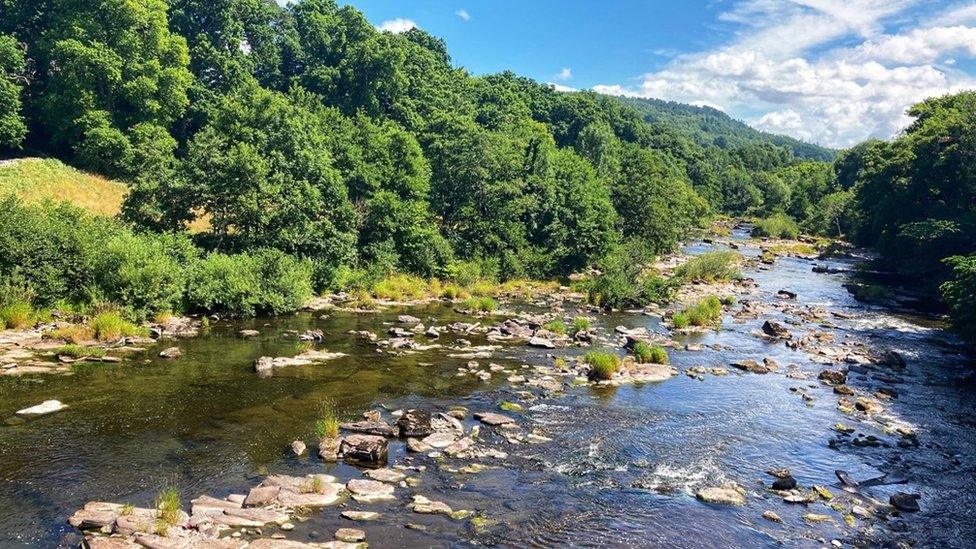
Rocks are not usually so visible on the River Usk at Llangynidr this time of year
What is a hosepipe ban?
Restrictions during hosepipe bans can vary between water providers but generally people are not allowed to use hosepipes or anything that connects to a hosepipe or outside tap.
During a ban, people cannot use a hosepipe to:
Water a garden or plants
Fill a paddling or swimming pool
Clean a car
Fill a pond
Clean walls or windows
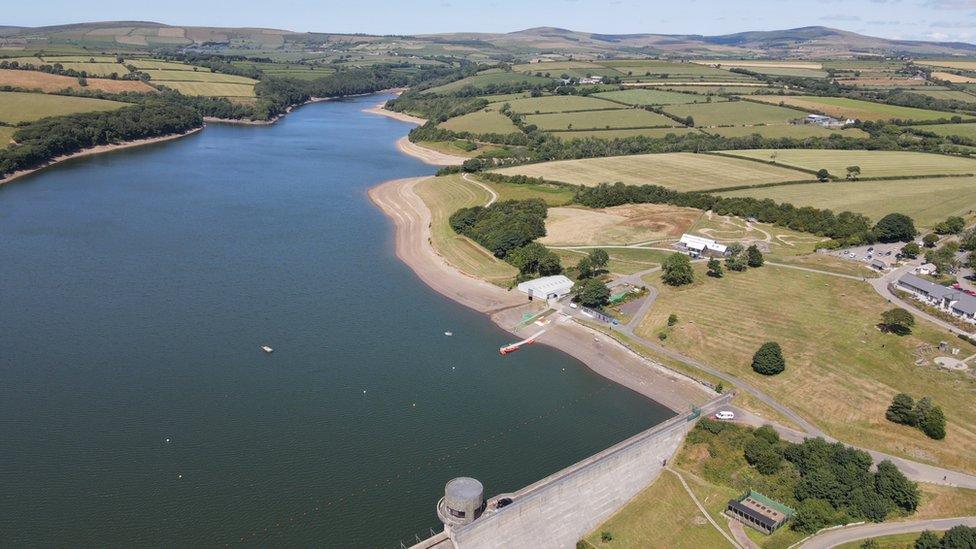
Welsh Water will hold a consultation over the planned hosepipe ban
However, there are some exceptions when a hosepipe can be used:
To water a new lawn within 28 days of it being laid
For business use
To fill pools needed for medical treatment
To fill a fountain used for religious practices
To top up a fishpond
Anyone breaking the rules could face a fine of up to £1,000.

Welsh Water added that Pembrokeshire has only seen just over 60% of the expected rainfall between March and July.
Data from the Met Office shows Wales experienced its lowest July rainfall since 2006.
BBC weather presenter Sue Charles said there was no significant rain in the forecast.
"In some parts of Wales - especially further east in places such as Cardiff and Wrexham - temperatures could reach the mid to high 20s," she said.

Welsh Water had earlier warned that people in some areas of Wales could face a hosepipe ban this summer.
"There is a slight concern about the situation in Pembrokeshire," it said.
"Between March and April, rainfall across Wales was only 50% of the long term average while between March and May it was just 60%."
Pressure group Welsh Rivers Union has been calling for an immediate hosepipe ban in parts of Wales following a period of hot weather with little rainfall.
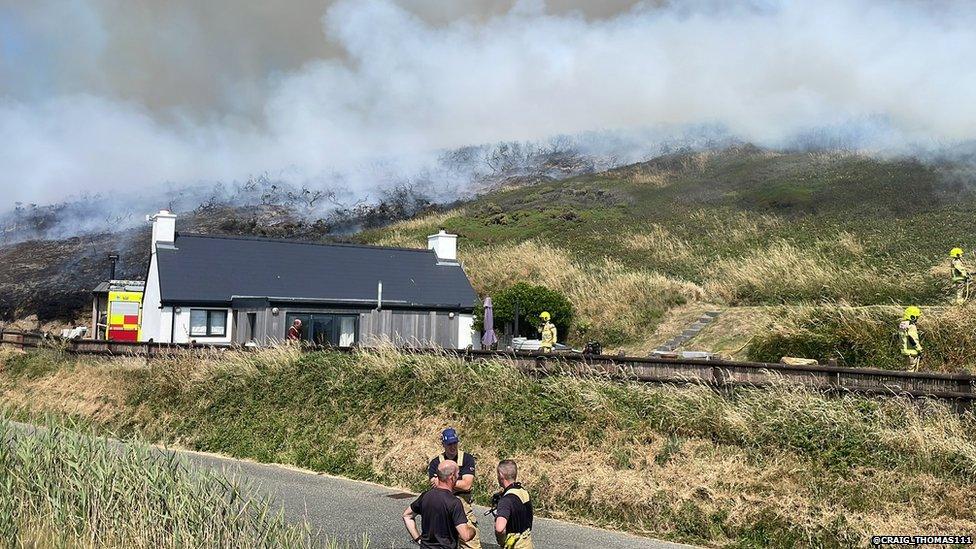
Arid conditions in Pembrokeshire caused a grass fire above Newgale, in very hot conditions during the heatwave last month
"We don't want to get to crisis point before we act," Kim Waters, co-founder of the Welsh Rivers Union, told BBC Radio Wales Breakfast.
"We have to be sensible as a society now. Water in Wales is just not a throwaway resource and we just need to manage it in a better way."
He said the group wanted Natural Resources Wales and Welsh Water to be open with the data they have.
"I just want them to be open, honest, tell us what the state is and act accordingly," he added.
The Welsh government said: "The current prolonged dry weather period reflects the challenges we all face in tackling climate change.
"We continue to encourage everyone to be considerate in their water usage to maintain water flow over the coming months."
Related topics
- Published16 June 2023
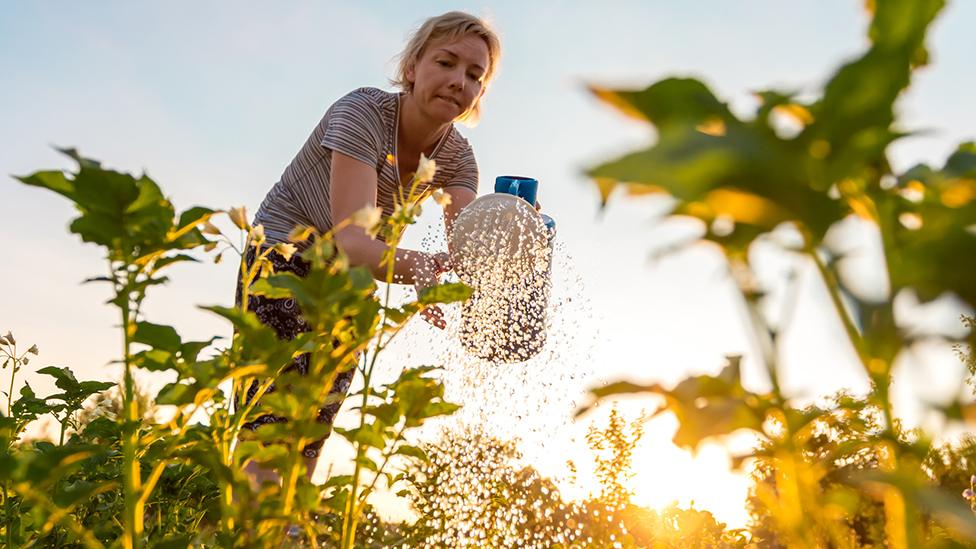
- Published30 August 2022
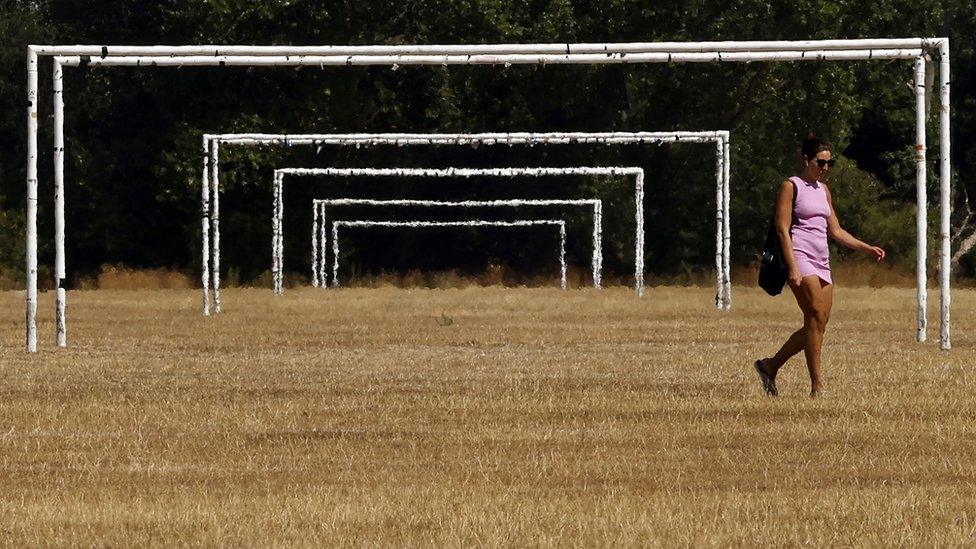
- Published13 July 2022
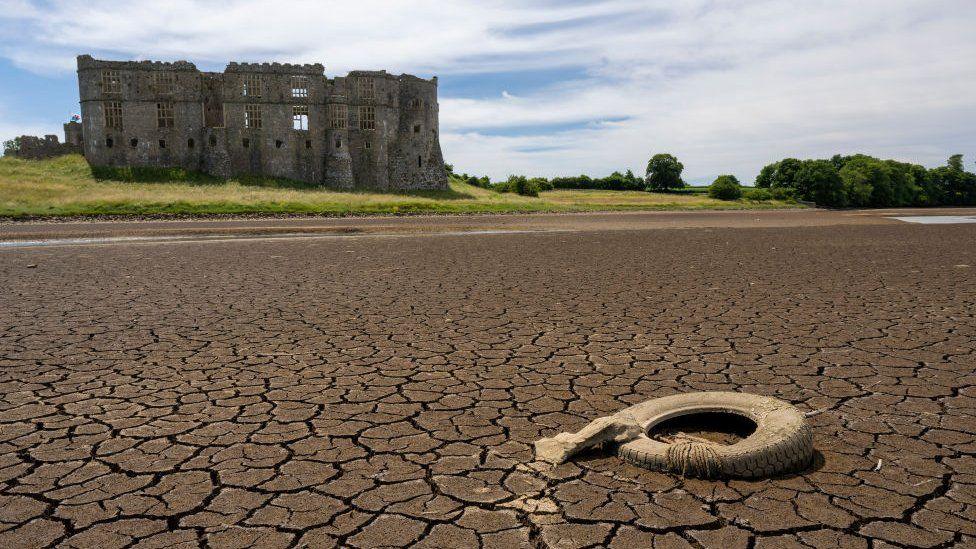
- Published18 July 2022
